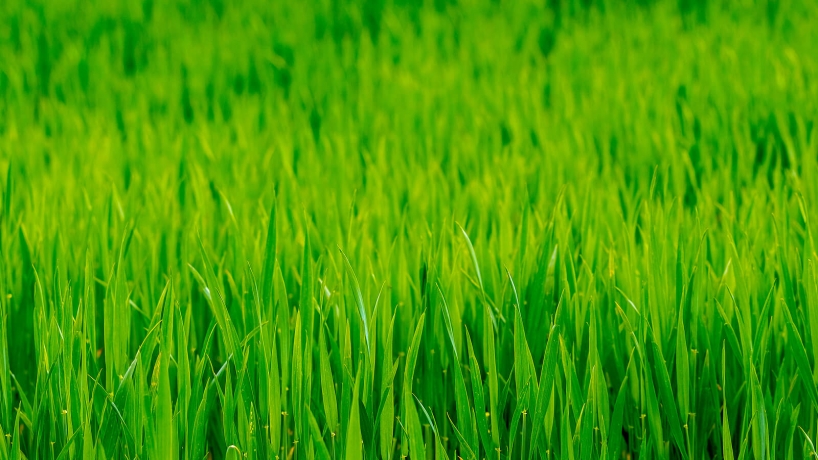
April 5th, 2022 by
How much do you know about iron sulphate and the benefits for your lawn? Here are 10 things you need to know about what it does and when to apply it to maximise its benefits.
It’s like a vitamin supplement for your grass
While grass will grow with a natural combination of sunlight and water, just as we need a bit of a boost with extra added vitamins and supplements that we may not be getting enough of from our diet, so too will grass benefit from some. Iron sulphate is a lawn feed treatment that gives it a boost of the nutrients it needs for strong growth, namely iron and nitrogen.
It makes grass greener because it’s making it healthier
The purpose of iron sulphate is commonly regarded as its ability to make grass thicker and greener, but this is really just a by-product of the benefits it’s really providing, namely allowing each blade of grass to retain more moisture. This makes it thicker and stronger but also softer. It ultimately makes it significantly greener.
It helps it resist disease, frost, and drought
One of the big benefits of strong, healthy grass is that it becomes more resistant to the blights that can damage it and ruin its appearance: disease, drought, frost etc. These things can cause a lawn to become patchy, go yellow, or even kill it off completely but strong grass is better positioned to fight them off and thrive.
It makes it less hospitable for pests
One of the greatest enemies of a lawn is pests. Insects such as chafer grubs or leatherjackets can wreak real havoc on your grass, often eating and destroying the roots, and once established are very difficult to get rid of. Iron sulphate not only makes the grass itself tougher, but it also raises the acidity of the soil slightly and this makes it less appealing to these kinds of pests, helping to prevent the issue before it even starts.
Used for turf hardening too
Did you know that professional grounds people routinely use iron sulphate on their grass pitches because of the way it hardens the turf and resists the damage that can be inflicted by playing sports on it? If it’s good enough for St Andrews, it’s good enough to cope with the kids playing on it and the dog’s toileting habits!
It’s best applied before a rain shower
Canny gardeners use Mother Nature to help them with their garden jobs. You can really maximise the effects of iron sulphate if you apply it in advance of rainfall as it will help it penetrate the ground better and get to the roots more efficiently. Keep an eye on the forecast and save yourself some work watering it in manually.
It’s also effective when applied after a rain shower
It’s even better if the ground already has a good amount of moisture so as well as keeping an eye on the forecast for forthcoming showers, try to schedule your application when there has already been one. Luckily in the UK, we’re rarely short of rainfall!
It’s not a good idea to apply in hot, sunny weather
While rain and moisture are good, heat and dry conditions are not. Hot temperatures can cause the chemicals in the treatment to intensify, and this can lead to the grass becoming scorched. Also, the dry ground will make it much harder for it to be absorbed properly and won’t work as well. Avoid hot sunny days and choose cool conditions to apply.
You shouldn’t apply it when too cold either
Cool is good but very cold is not. Frozen ground is just as hard to penetrate as dry ground and if you pour water on it, you’re more likely to form ice than treat the ground properly. Make sure the ground temperature is well above freezing when applying.
You can apply from September through to March
Iron Sulphate is most effective when applied every 6-8 weeks from September to March. Of course, if temperature and weather conditions are kept in mind it can be applied during the summer months too, but please approach with caution to avoid causing damage to your lawn.
Comments
Leave a reply
Your e-mail address will not be published. All fields are required


